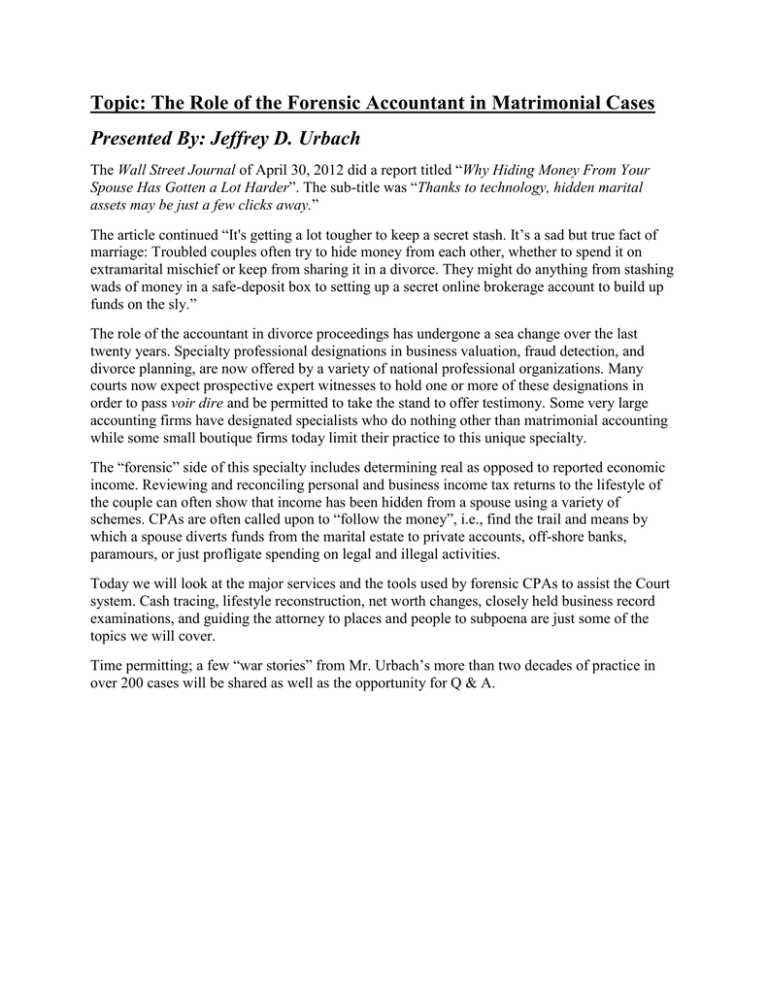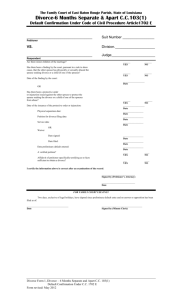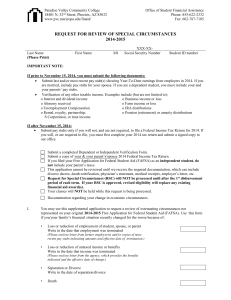Topic: The Role of the Forensic Accountant in Matrimonial Cases
advertisement

Topic: The Role of the Forensic Accountant in Matrimonial Cases Presented By: Jeffrey D. Urbach The Wall Street Journal of April 30, 2012 did a report titled “Why Hiding Money From Your Spouse Has Gotten a Lot Harder”. The sub-title was “Thanks to technology, hidden marital assets may be just a few clicks away.” The article continued “It's getting a lot tougher to keep a secret stash. It’s a sad but true fact of marriage: Troubled couples often try to hide money from each other, whether to spend it on extramarital mischief or keep from sharing it in a divorce. They might do anything from stashing wads of money in a safe-deposit box to setting up a secret online brokerage account to build up funds on the sly.” The role of the accountant in divorce proceedings has undergone a sea change over the last twenty years. Specialty professional designations in business valuation, fraud detection, and divorce planning, are now offered by a variety of national professional organizations. Many courts now expect prospective expert witnesses to hold one or more of these designations in order to pass voir dire and be permitted to take the stand to offer testimony. Some very large accounting firms have designated specialists who do nothing other than matrimonial accounting while some small boutique firms today limit their practice to this unique specialty. The “forensic” side of this specialty includes determining real as opposed to reported economic income. Reviewing and reconciling personal and business income tax returns to the lifestyle of the couple can often show that income has been hidden from a spouse using a variety of schemes. CPAs are often called upon to “follow the money”, i.e., find the trail and means by which a spouse diverts funds from the marital estate to private accounts, off-shore banks, paramours, or just profligate spending on legal and illegal activities. Today we will look at the major services and the tools used by forensic CPAs to assist the Court system. Cash tracing, lifestyle reconstruction, net worth changes, closely held business record examinations, and guiding the attorney to places and people to subpoena are just some of the topics we will cover. Time permitting; a few “war stories” from Mr. Urbach’s more than two decades of practice in over 200 cases will be shared as well as the opportunity for Q & A.






